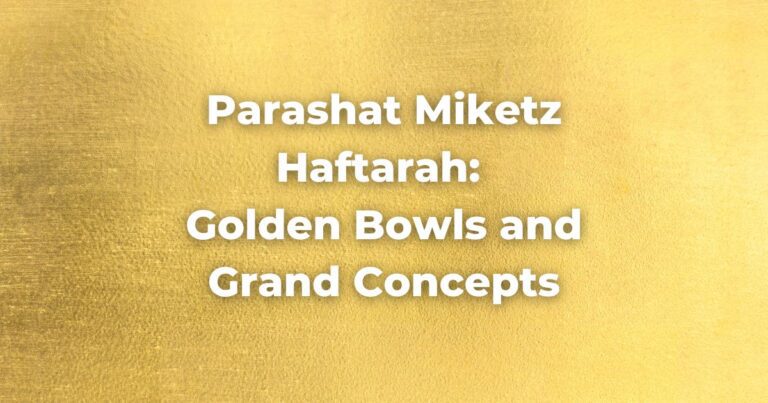Many of our sacred texts are deeply unsettling. Our matriarchs and patriarchs are deeply flawed people. Their stories do not present obvious morals or easy takeaways.
This is especially true in Genesis.
We read stories of rape, murder, deceit, and incest. This week’s parashah is especially difficult. As we begin both the epic story of Joseph and the story of the twelve brothers who will become the tribes of Israel, not a single person conducts themselves in a way we would like to emulate.
On the one hand, this is good storytelling.
If we begin with drama and trouble, we can only improve as the story continues. We have conflict that begs for a resolution, and characters that need to grow and change.
But on the other hand, we have horribly disturbing stories revealing aspects of human nature we would rather not face.
It’s some consolation to know that the Tanakh itself is also disturbed by the stories we read in Genesis.
In this week’s haftarah, Amos 2:6 – 3:8, we find not only reference to the stories in this week’s parashah, but also condemnation of some of the behavior present in the stories.
We read of God’s promise to punish Israel because of Israel’s behavior. As Robert Alter translates Amos 2:6-7, “For three trespasses of Israel, and for four, I will not turn it back— for their selling the just man for silver and the needy for sandals. Who trample the head of the needy in the dust of the ground and pervert the way of the poor. And a man and his father go to the same girl to profane My holy name.”
We have seen a man sold.
Joseph’s brothers sell him to traders for silver. They had planned on killing him, so it’s a definite improvement. But watching brother sell brother, watching our ancestors behave in such a way, is horrible. However, the text of Amos does not totally reflect the story of Genesis 37.
The man sold in the haftarah is described as “just,” as tzadik.
We know that word from Genesis. Noah is described that way. Abraham bargains with God about finding fifty just people in Sodom.
But nowhere is Joseph described as just.
He is described as hated, as condemned by father and brothers. He is, after all, the sort of person whom a loving father chooses to send to murderous brothers.
So why does the haftarah need to present this man as just? What happens to the story when we need to read Joseph as the hero, the role model, the good guy?
The haftarah does the same to the story of Tamar.
In this week’s parashah, we read the incredibly complicated tale of Tamar duping her father-in-law, Judah, into getting her pregnant in order to continue the line of her dead husband.
Tamar has an incredible amount of agency in this story.
Even as she is threatened with death by burning for committing adultery, Tamar manages to keep her cool and outsmart the system to claim what is rightfully hers. But it remains a very unpleasant tale.
In order to succeed, Tamar has to sleep with the father of her two dead husbands. The retelling in the haftarah erases Tamar’s role.
She becomes a “girl,” frequented by a man and his father. She is acted upon rather than being the driver of the narrative, becoming little more than a way to demonstrate the unethical behavior of the players who matter.
As a prophetic text, Amos dictates what behavior should look like.
We are told explicitly how not to act and what sort of consequences our actions will bring. We get clear instruction about right and wrong without any of the moral ambiguity of Genesis.
And yet, when we read our own lives, things are not so clear cut.
Life can look a lot more like the mess of Genesis than the strict reward and punishment system of Amos. While it is helpful to use Amos to allow us to critique behavior in Genesis, we can also use Genesis to remind ourselves that we will not always be able to be the tzadik.
See more: Parashat Vayeshev
Originally posted as part of the Conservative Yeshiva at the Fuchsberg Jerusalem Center’s Torah Sparks. Support TorahRefers to the first five books of the Hebrew Bible, the Tanakh, also called the Five Books of Moses, Pentateuch or the Hebrew equivalent, Humash. This is also called the Written Torah. The term may also refer to teachings that expound on Jewish tradition. Read more learning from the Fuchsberg Jerusalem Center/Conservative Yeshiva for leaders and seekers around the world here.
Authors
-

Bex Stern Rosenblatt is the Conservative Yeshiva’s Faculty-in-Residence for the Mid-Atlantic Region of the United States, teaching Tanach, using the techniques of close-reading, theater, feminist readings, and traditional commentators. Bex also directs the CY’s recruitment efforts in North America. After finishing her B.A. in History and German at Williams College, Bex received a Fulbright Grant to Austria. She later earned an M.A. in TanakhAn acronym for the name of the Hebrew Bible: Torah, Neviim, and Ketuvim. Read more from Bar Ilan University and has also studied at the Conservative Yeshiva and Bina Jerusalem. Bex is the founder of HavrutaA study partner. A hevruta is more than just a ‘study buddy’ it is a serious and personal relationship between colleagues. Also spelled: Havruta Read more Tel Aviv, an organization that facilitates guided pair-learning of the Tanakh.
View all posts -



The Fuchsberg Jerusalem Center (FJC) is a home in the heart of Jerusalem where leaders and seekers can find an authentic place in Jewish tradition to call their own. FJC offers opportunities to study, pray and explore within an egalitarian and inclusive setting, creating multiple pathways for finding personal and communal meaning.
View all posts






